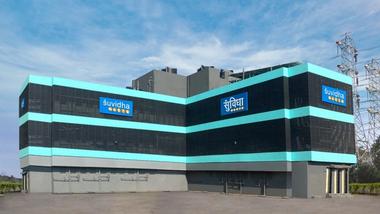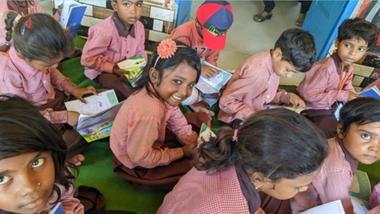Project Suvidha
Accelerating progress on the Swachh Bharat Mission (SBM) 2.0 Urban and Sustainable Development Goals, HUL set up Suvidha (Convenience) – a first-of-its-kind urban hygiene and sanitation community centre providing affordable access to clean toilets, purified drinking water, showers, and laundry services to over 5,00,000 people residing in informal settlements in Mumbai. Inclusive by design, the centre provides safe, private, hygienic, and odour-free toilet facilities for women, men, children and people with disabilities. Further, extensive behaviour change programmes are conducted around Suvidha centres to encourage people to adopt four simple yet important habits: washing hands with soap; eating nutrition-rich meals; drinking safe water; and using clean toilets to reduce the scope of illness and create good health outcomes for families.
HUL has built 20 Suvidha centres as of today, through a public-private partnership with the Brihanmumbai Municipal Corporation, HSBC India and JSW Foundation. HUL also works with implementing partners United Way Mumbai and Pratha Samajik Sanstha and governance partner Ernst & Young (EY).

The holistic Suvidha model is helping transform urban community toilets into clean, hygienic and self-sustainable centres that have bolstered health, nutrition, sanitation, and livelihood outcomes, as assessed by Deloitte Touche Tohmatsu India LLP in 2023.
- 5,00,000+ people have access to safe and dignified hygiene and sanitation services
- 200+ million litres of water saved cumulatively through water-saving technologies
- INR 15 is the estimated return on investment to the community for time saved by using Suvidha’s services
- 100% of Suvidha users avail purified and clean drinking water and other WASH (water, hygiene and sanitation) services at the centres at all times thereby building community resilience against climate change
Our Suvidha model has been presented at COP28 as a Climate Resilient WASH Model and recognised by the World Economic Forum (WEF) as an example of a ‘Public- Private’ collaboration that can improve the health of cities. It has, further, been recognised by Harvard Kennedy School (HKS) as a sustainable & replicable model for urban slums.
In 2024, the Ministry of Housing & Urban Affairs (MoHUA) has signed an MOU with HUL for establishing a Technical Support Unit (TSU) to support the development of model Suvidha Centres nationwide and in building capacity for climate resilience sanitation in India.

Swasthya Curriculum
Our Swasthya Curriculum behaviour change programme educates children on the importance of adopting four key hygiene and wellbeing habits. Launched in 2016, this pioneering health education initiative has successfully reached about 9 million students across 80,000 government schools in seven states: Bihar, Gujarat, Madhya Pradesh, Haryana, Uttarakhand, Maharashtra, and Uttar Pradesh. Through strategic partnerships with these state governments, the programme has embedded comprehensive health education into public school systems, teaching essential practices like proper handwashing, safe water consumption, nutrition awareness, and sanitation through age-appropriate, engaging methodologies aligned with the Government's Swachh Bharat Abhiyaan and Poshan Abhiyaan.
Over 17% increase reported in children now adhering to all four healthy habits
25% rise reported in usage of toilets for defecation
With a 50% rise, children accurately identify opportunities to wash their hands with soap
Dove self-esteem programme
The Dove self-esteem programme, for 20 years, has been helping young people with self-esteem education, reaching over 136 million lives in 150 countries.
The partnership funding is being directed to UNICEF India’s Life Skills Education programme and contributes to the Government of India’s Samagrha Shiksha Abhiyan (SMSA) programme. Under the SMSA programme, the Ministry of Education has a clear mandate to deliver a comprehensive life skills education curriculum. Our partnership is supporting teachers with specific training on self-esteem and body confidence through educational materials, under the agreement with the Government of India. The programme has reached 8.8 million lives.
8.8 millionpeople reached in India through the Dove self-esteem initiative.

Asha Daan
In 1976, we supported Mother Teresa and the Missionaries of Charity and established Asha Daan in Mumbai—a home for ailing and needy people.
To date, we care for around 350 people living in Asha Daan at any given time. Currently, the home is under redevelopment and will soon be completed with improved amenities.

Based on estimations for all 20 Suvidha centres
